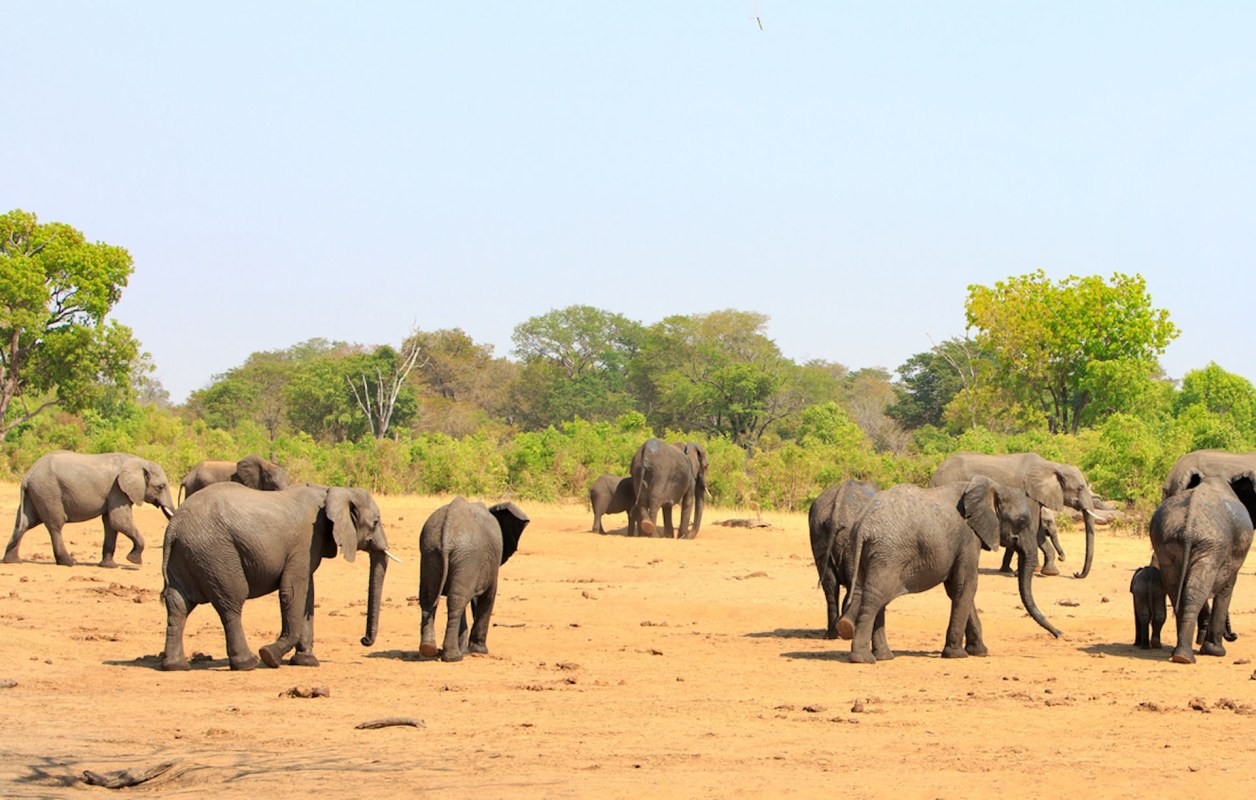In Zimbabwe's Hwange National Park, more than 160 elephants tragically perished between August and December last year because of severe drought conditions.
What's happening?
The Zimbabwe Parks and Wildlife Management Authority (Zimparks) attributed these deaths primarily to starvation caused by the scarcity of food and water because of the prolonged dry spell.
Tinashe Farawo, a Zimparks spokesperson, emphasized the grim situation, stating that most of the deceased elephants were young, old, or sick and were found distressingly close to water sources, according to the Guardian.
This catastrophic loss of wildlife highlights the dire consequences of persistent dry weather and drought conditions, exacerbated by the intensifying climate crisis in southern Africa.
"It was horrible to see orphaned calves waiting aimlessly for death, and it's horrible to drive around seeing and smelling dead elephants," said one conservationist.
Why are these elephant deaths concerning?
The death of these elephants underscores the urgent need to address the escalating drought problem and its devastating impact on biodiversity and ecosystems.
According to the Bhejane Trust in the Guardian, the prolonged dry period experienced in 2023, with no rainfall recorded from February to November in Hwange National Park, severely depleted food and water sources essential for the survival of wildlife.
Trevor Lane, co-founder of the Bhejane Trust, warns that the conditions that led to these deaths will persist.
"There was low nutrition, very high temperatures, and a shortage of water; this contributed to massive stress, and it might happen again in 2024," Lane said.
The consequences extend beyond immediate wildlife deaths. The loss of iconic species like elephants disrupts the delicate balance of ecosystems, leading to cascading effects on biodiversity.
Biodiversity helps ensure that ecosystems are resilient and can recover from disruptions like extreme weather events. Each species plays a unique role, like a puzzle piece fitting into a larger picture, contributing to the health and stability of the environment.
For example, pollinators like bees and butterflies are crucial for helping plants reproduce, which in turn supports food chains that countless species, including humans, rely on.
What's being done about it?
In response to the escalating crisis, conservation groups in Hwange are taking proactive measures to mitigate the impact of drought on wildlife. Efforts are underway to drill more boreholes and install solar-powered systems to ensure a continuous water supply, especially during the anticipated hot season, according to the Guardian.
By dispersing elephants to areas with more abundant food and water resources, conservationists aim to reduce competition and alleviate the strain on limited resources within the park.
Join our free newsletter for cool news and cool tips that make it easy to help yourself while helping the planet.








